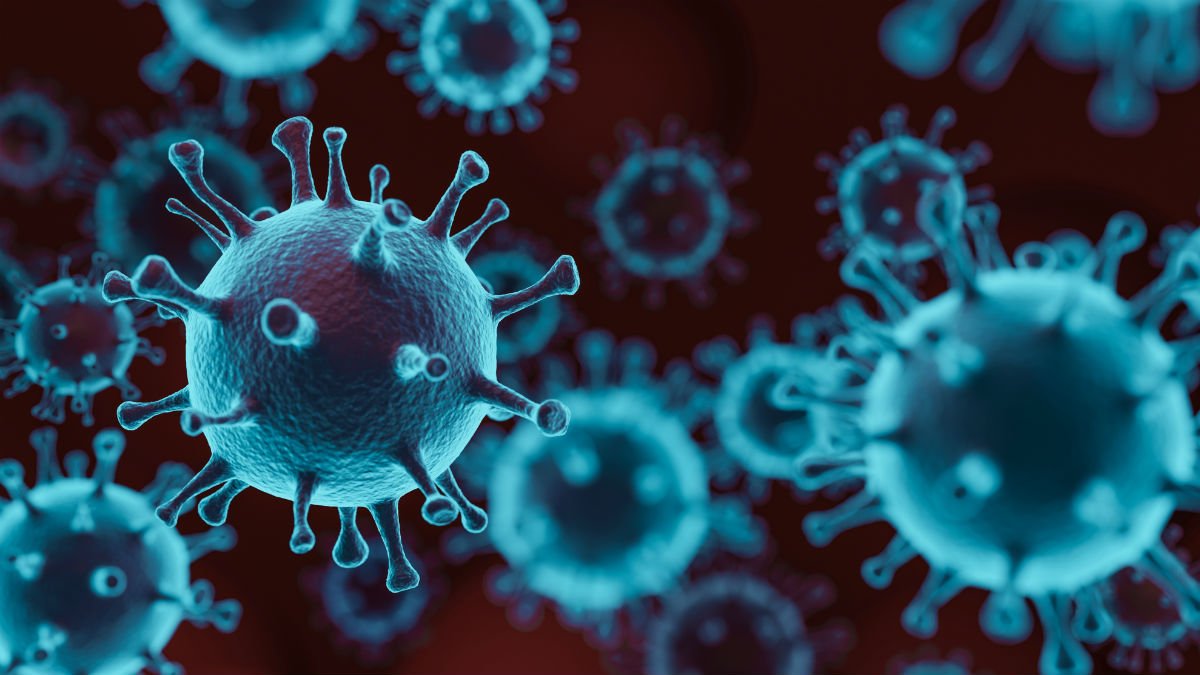What are Surrey academics saying about Covid-19?
As the Covid-19 continues to spread across the world, we spoke to some of our experts here at Surrey about the pandemic and its impact on the population and society.

The opportunities and challenges of offering online support during pregnancy and maternity
Dr Ranjana Das (Department of Sociology) shares her thoughts:
"Online support has become the sudden ‘new normal’ for mental health support in pregnancy and maternity, amidst COVID-19. Online support poses key challenges such as resource shortages, training preparation and delivery, inexperience, inequalities in digital access and a general lack of understanding for the benefits of such support.
So to best support pregnancy, maternity and perinatal mental health in these unprecedented times using digital means, the 3 key tasks are:
- Urgent research/evaluation: to find out what mums' needs from and experiences are of online support – forums, apps, WhatsApp groups and more;
- Outreach: to locate mums who are likely to fall on the wrong side of digital inequalities and divides - those who are least likely to be able to access new, online support forms;
- Training: for those who provide pregnancy/maternity support to now do so digitally, effectively and in a secure and accessible way."
Restoring social connectivity through travel post COVID-19
Professor Scott Cohen (School of Hospitality and Tourism Management), discusses his thoughts:
"As lockdown renders non-essential travel impossible, people can only reflect on past experiences and dream about future ones. The pandemic has reminded us of the many ways in which we are connected, and together we can look forward to the time when travelling is possible again and valuable connections are restored.
The travel industry recognises the need to get people travelling again once this pandemic is over, and with the World Travel & Tourism Council (WTTC) launching a new marketing campaign, #TogetherInTravel, the aim is very much highlighting the importance of the sector post-COVID19."
How can Africa’s tourism sector recover from the impact of COVID-19?
Dr Albert Kimbu (School of Hospitality and Tourism) had this to say:
“Tourism is becoming an important economic sector for most African countries with the World Bank reporting that one in 20 jobs in sub-Saharan Africa was in the travel and tourism sector before the COVID-19 outbreak. However, the World Travel and Tourism Council has warned that it could take longer for African destinations to recover with the travel body estimating a 1% to 3% decline in international tourist arrivals in Africa in 2020. This could translate into a huge loss of $30 - $50 billion in spending by international visitors.
The tourism sector is resilient however, and has often overcome crises. African countries would have to engage in post-crisis marketing, utilising traditional and non-traditional media channels to highlight the lower scale of the pandemic in Africa in comparison to other destinations outside the continent, therefore projecting African countries as potential alternative holiday destinations.
Importantly, in addition to government providing financial support to tourism businesses to stay afloat as has been observed in the West, African governments would have to focus on increasing the promotion of domestic and intra-African tourism and travel which until now has been largely ignored. Most destination management organisations in Africa prefer marketing campaigns targeted at international visitors out of Africa and neglect the purchasing power of the growing African middle to higher income classes.”
Can COVID-19 help us reconfigure our relationship with the natural world and tackle climate change?
Dr Tom Roberts (Department of Sociology) shared his thoughts:
“COVID-19 has brought trauma, disruption and hardship for billions of people around the world. But, it has also given us an unprecedented opportunity to reflect upon our everyday lives, consider what is important and see that a more sustainable way of life might be possible.
While the current focus is, quite correctly, on defeating coronavirus and getting back to ‘normal’, many of the new relationships, connections and everyday practices created during the pandemic are likely to survive beyond the current crisis.
The key question for policy makers and researchers is, how can we maintain more sustainable practices and utilise new relationships to tackle climate change? This will require a comprehensive review of our movement, transport and consumption practices as well as our broader relationship with the natural environment."
How will COVID-19 shape the future of retail?
Professor Sabine Benoit (Surrey Business School) had this to say:
“Thanks to COVID-19, we are going to see more and more technology that allows us to avoid psychical contact such as sensors that will lead to doors or lids opening automatically, and more contactless payment potentially with facial recognition rather than entering pins or swiping cards.
Unfortunately, this will also impact some very positive developments in retail and hospitality in avoiding plastic. For example, consumers bringing their own cups or their own packaging will become an issue as providers might develop policies to protect their staff from handling this material. Open salad bars or open bread or pastry counters will also now be viewed with suspicion.
Not all behaviour will change, but we can be very sure that the pandemic will leave its traces. Hopefully there will be innovations that will mean not going backwards wrapping everything in packaging.”
Tackling the rise in profiteering during lockdown
Dr Emily Finch (School of Law) explains her thoughts:
"Empty supermarket shelves caused by panic buying during the coronavirus has led to callous profiteering as scarce items are offered for sale at inflated prices.
The Competitions and Markets Authority (CMA) have urged traders not to exploit fears about the virus for profit but this seems to have limited impact, especially in online marketplaces where examples of profiteering included a £1 bottle of handwash offered for sale at £100.
A CMA taskforce has since been established to monitor the situation, but its powers are limited to warnings and enforcement powers based upon breaches of consumer protection law. However, the taskforce can seek greater powers from the government if the situation continues in a way that has a negative impact on public health or the supply of essential goods and services."
The impact of COVID-19 on prisoners and their families
Dr Dan McCarthy and Dr Maria Adams (Department of Sociology) had this to say:
"COVID-19 has many implications for the relationships between prisoners and their families.
Ordinarily prisoners will receive approximately 2-3 physical visits per month from family, which is often valuable for helping sustain ties in preparation for eventual release from prison. Because of the risks of viral transmission, physical visits have been temporary cancelled. This loss of physical interaction can potentially increase anxiety for the health and welfare of both prisoners and family members, limiting emotional connectedness, and making lives inside and outside prison more challenging as a result.
The absence of any stable timeframe for how long social distancing measures will last places all of us in a state of limbo – an experience even more extreme for prisoners and their families. The hope is that this difficult period will accelerate the deployment of virtual visitation technology in prisons to help prisoners maintain ties with their families.”
Consumer stockpiling behaviour during COVID-19
Professor Sabine Benoit (Surrey Business School) had this to say:
“Stockpiling necessities is a very natural consumer behaviour when there is fear that certain products might become unavailable. Seeing empty shop shelves on the news and on social media is further reinforcing this behaviour.
Conveneincestore.co.uk reported that every UK household did on average three extras shopping trips in March alone, very likely hunting for products that were sold out in other stores. My message to the UK consumer is, if your favourite product is not available, switch for a short while and then trust your retailer. UK grocery retailers are amongst the strongest in the world, once they have adapted to the new normal, stock will reappear.”
How is COVID-19 impacting our already struggling high street?
Professor Tazeeb Rajwani (Surrey Business School) explains his thoughts:
"The pandemic has caused unprecedented disruption to the already struggling UK high street.
A large number of firms will need to renegotiate with banks, landlords and suppliers, set-up e-commerce sites, apply for grants and loans, develop local delivery capabilities and host virtual events, and help develop new forms of community engagement and digital marketing. However, the pandemic, will also create many new winners that will thrive due to their online business models. These will include food delivery companies, remote working platforms, and streaming platforms.
While we continue to grasp the scale of this pandemic, many businesses will need to consider demolishing their old business models and create new ones. Being adaptive and flexible will lead to survival in this new volatile, uncertain and ambiguous world."
Will COVID-19 change how we holiday?
Roger Pride (School of Hospitality and Tourism Management) explains his thoughts:
"Post COVID-19, nobody really knows how the world will look or specifically, how people will behave when it comes to booking holidays again. Some people will still feel unsafe and not holiday at all, while some will feel more secure in destinations on their own doorstep. Others will return to their favourite place and gain comfort from being in familiar surroundings, while those with cabin fever will long for new horizons and wide open spaces.
Destinations all over the world will be thinking about how they 'bounce back' from this life-changing pandemic. It will not be enough to operate business as usual anymore. Success will come instead to those adaptive places and businesses who are authentic and who think deeply about the visitor experience they offer. Having a compelling visitor story will be more vital than ever and may mean the difference between future success and failure."
In a time of more digital dependence, how has COVID-19 impacted cybercrime?
Dr Emily Finch, School of Law, shares her views:
"The COVID-19 pandemic has created a greater-than-ever dependence on the digital infrastructure. This creates vulnerabilities for cyber-criminals to exploit and recent weeks have seen a proliferation of virus-related scams, such as fake websites, phishing campaigns and Trojans disguised as medical updates.
The mass migration to home working has also led to so-called Zoom-bombing in which videoconferencing software has been hijacked and users subjected to disturbing content. Those most at risk are the occasional internet users who have been forced to shift to the online environment to carry out basic tasks such as shopping, banking and maintaining contact with family and friends.
At a time when society is at its most vigilant to risks to health, it is crucial that we also remember to protect ourselves from threats in the digital world from unscrupulous online criminals."
Is the parenting balance changing due to COVID-19?
Dr Paul Hodkinson, Department of Sociology, had this to say:
"Attempting to work from home while keeping children safe, entertained and educated is presenting an unprecedented challenge to millions of parents.
Working mothers have long been disproportionately burdened with the ‘second shift’ of childcare and domestic responsibilities and there’s a significant danger the current lockdown will exacerbate this. Yet COVID-19 also presents a unique opportunity for fathers working from home to begin to share daily childcare equally with their partners. This is not only down to the willingness of individual fathers; it is important that employers offer them as much leeway as mothers for caring for and educating their children. Schools and local parent groups may also be able to help, by including fathers in communications and encouraging them to participate in parent WhatsApp groups.
Encouraging and enabling fathers to take on their share of care amidst COVID-19 is particularly important because, as well as enabling exceptional current burdens to be borne jointly, it’s just possible this could foster development of more equal roles in families thereafter."
How to eat healthily during lock down?
Dr Adam Collins from the Department of Nutritional Sciences explains:
"In this time of lock down, with infrequent food shops and some limited availability of foods, people may be unsure what to buy or cook with limited choice. One simple approach could be to look at meals as consisting of 3 elements, Protein (red), carbohydrate/fibre (yellow) and fruit and/or vegetables (green). You could call this the power of three.
"These rules mean you can be totally flexible as to what foods will serve as these three elements, and allow you to adapt to what is available at home or in the shops.
- The protein element need not just be chicken or eggs, but can be other lean meats, fish, beans/pulses, nuts/seeds or plant based protein products (e.g. based on soya like tofu or soyamince, or quorn).
- For the carb/fibre element, this need not be pasta, but rice, bread, corn/maize, potatoes or other root vegetables and other cereals. Try to choose some wholegrain varieties as well, especially as these tend to be more likely left on the shelves.
- For the fruit and veg element, this could be anything available, either fresh, frozen or tinned. The more variety the better. Fruit and veg also serve as excellent healthy snacks for adults and children alike. "
Can reading pandemic and plague related literature help us in times of social isolation?
Professor Bran Nicol, School of Literature and Languages, said:
"There’s a rich history of writing about pandemics and social collapse – think of Albert Camus’s The Plague, JG Ballard’s High Rise, and Ling Ma’s Severance. Immersing ourselves in books like these reveals to us our own humanity and helps us imagine coping strategies in times of crisis.
Reading is something we do in isolation. Typically we read alone, in an armchair or in the garden. But reading is a form of connection with other minds and other people, the characters in a novel and the mind of the author.
In troubled times, literature reminds us we’re part of a community, that we belong. Literature reassures us we’re not alone."
How is COVID-19 affecting new mothers?
Dr Ranjana Das, Department of Sociology, had this to say:
"Becoming a new mum can be stressful at the best of times, but the impact of social distancing measures on new mothers is going to be profound. Social isolation, inability to meet friends and family for support, and the halt to baby groups and classes will mean that many will have to struggle with postnatal wellbeing difficulties without access to usual sources of support. Many may also have to take on dual pressures at home if partners are not fully supportive or cannot share the childcare load equally.
Numerous organisations are working extremely hard to provide online and telephone support and the coming weeks and months will be critical in terms of assessing their efficacy. In the meantime, new mothers could consider scheduling video calls with friends and family and online exercise classes. Those who know any new mums would be encouraged to make a special effort to reach out to them at such a difficult time."
How should businesses plan ahead for survival during COVID-19?
Professor Tazeeb Rajwani, Surrey Business School, said:
“All global businesses are already feeling the financial crunch from the coronavirus.
In the short term, businesses need to maintain core customer services, maintain staff well-being, stabilize their supply chain and manage their working capital requirements. In the medium term, businesses need to prepare for the debilitating and volatile effects of COVID-19 from the slowdown in the economy and people's livelihoods.
It is in the long term, where I believe this virus may actually harm businesses. In the event of future pandemics, which are unfortunately bound to arise due to climate change, the need will arise for improved digital tools to combat them. Businesses will then need to stay very close to their customers, embrace remote working, ensure liquidity and work closely with their suppliers.”
How to avoid bad eating habits during lock down
Dr Adam Collins from the Department of Nutritional Sciences explains
“With most of us staying at home, including working and looking after children, it can be easy to lose structure in the day, including how you structure your eating. Try to stick to regular meal times with a fixed pattern. For most people this is traditionally breakfast, lunch and dinner, but try to maintain the pattern you had before lock down.
“It is important not to let meals and snacks/drinks stretch out late into the evening even if going to bed later than usual. Also be mindful of how much you are eating overall, not just at mealtimes but also snacking in between meals. You are likely to have more opportunity to eat than usual as you are at home, and eating out of boredom can be a risk.
“Don’t forget that drinks (alcoholic and non-alcoholic) will be contributing calories too. It is common that for many people they you may well be less active than usual, so you need to attenuate you are eating accordingly, (portion and/or frequency of eating).”
The rise of hate crime and social abuse
Professor Jon Garland, Department of Sociology, said:
“During the COVID-19 pandemic we have witnessed a range of hate crimes and social abuse.
There has been a rise in verbal abuse and physical assaults directed towards Chinese people, or those mistaken for being Chinese, by perpetrators whose anger about and fear of the virus seemingly manifests itself in hostility directly towards those they blame for starting it. We have also seen the abuse of those who own second homes in Devon by local people who reportedly fear that ‘outsiders’ are ‘importing’ the virus to their communities. Worryingly, there is now also evidence that health workers are being targeted, perhaps out of fear that they are coming into contact with patients with COVID-19 and thus might be spreading it themselves.
This deliberate targeting of a section of the population due to hostility against their identity is ultimately a real cause for concern. It poses real challenges for a police service that’s already stretched, but unless the police divert resources towards tackling this issue then it will leave a legacy that will outlast the COVID-19 crisis.”
Remote working and miscommunication
Dr Doris Dippold, School of Literature and Languages, explained:
“Almost overnight, the vast majority of the UK’s office-based workforce has had to start working from home in order to aid social distancing. This has meant that communication which normally takes place in person, such as team meetings, is now facilitated through various online tools such as MS Teams and Zoom.
“However, any communication which is mediated in this way bears higher dangers of miscommunication. This is not only because of inevitable technical disturbances, but also because important social cues such as body language, facial expressions etc. may not be as efficiently transferred as in a face to face meeting.
“In these circumstances, it is therefore even more important to use strategies which raise clarity and signal meaning explicitly, such as appropriate ‘signposts’ which guide the audience through the interaction (‘my point is’, ‘I have an objection’, etc.). This is particularly important if there are speakers in the team for whom English is not a first language as they can be more reliant on the full range of cues which normally convey meaning.”
How meditation can help during these stressful times?
Paul Knytl, School of Psychology, said:
“It has been recognized for thousands of years that our mental habits and patterns of thought can increase our suffering. The current combination of isolation, disruption to our normal routines, and inundation with attention-grabbing headlines due to Covid-19 can lead us to focus on some very stressful and anxiety inducing narratives, making things seem worse than they actually are. Ironically, evidence suggests that prolonged stress can, amongst other things, reduce our immunity to infection.
“One type of meditation, mindfulness meditation, has been developed to interrupt these unhelpful patterns of thinking by paying attention to things as they actually are – our present moment experience. One way this is achieved is by focusing on the sensations of the breath moving in and out of our body. This type of meditation has received a lot of attention from researchers in recent years, and an increasing body of evidence suggests it reduces symptoms of anxiety and depression, as well as alleviating stress, and may modulate stress-related immune outcomes.
“In addition to playing a central role in the Buddhist tradition for millennia, mindfulness meditation now forms the basis for a number of widely used secular clinical interventions. Although not for everyone, people interested in trying mindfulness meditation can find a number of good free online guided meditations by searching for samatha, vipassana, mindfulness meditation, or via a plethora of apps like Headspace or Calm, some of which provide discounts for students.
“Some Buddhist charities, like the UK’s Samatha Trust, are also providing online lessons on a free/donate-what-you-can basis. To quote Jon Kabat-Zinn, a clinician and long-time proponent of the practice, ‘As long as you are breathing, there is more right with you than wrong with you.’”
Enforcing lockdown and the public's reaction to #stayathome
Nick Clapham from the School of Law, said:
"In unprecedented times Parliament has handed the Government extraordinary powers to deal with the COVID-19 crisis.
Despite the extent of the powers and the enforcement mechanisms available to police, limits within the powers and enforcement resources mean that compliance will be depend upon the willingness of the people to voluntarily abide by the rules.
The key questions are for how long and to what extent the people will accept the postponement of liberty on the grounds of necessity? Despite a shaky start, the current signs are good and the overwhelming majority appears to both understand and endorse the key message to stay at home."
How will the pandemic impact the aviation industry?
Dr Frankie O'Connell from the School of Hospitality and Tourism Management, said:
"The Government have announced new partnerships with airlines and an investment of £75 million to fly stranded Britons home on special chartered flights. The complexity for this mass repatriation is mammoth as it is estimated that there are 4,000 British citizens on vacation in Bali, Indonesia alone.
These chartered flights are unprecedented as the aircraft will largely be empty on the outbound flight from the UK and must carry additional crews for the return leg of the journey because crews will not stay overnight at these destinations. The financial impact of this partnership is financially negligible for the airline industry but the social responsibility is of utmost importance and airlines have responded emphatically to assist."
How has Covid-19 impacted on Brexit negotiations?
Professor Simon Usherwood, from the School of Politics, explained:
“For many in the UK in recent years, Brexit has been the inescapable story and concern. A fundamental upheaval of political, economic and social organisation, it’s perhaps not surprising that it’s taken a global pandemic to knock it firmly off the news agenda. And yet Brexit remains an unresolved and consequential process that cannot be ignored for too long.
“Most obviously, the smashing of the already-tight timetable for moving into a new UK-EU relationship means that there will have to be a decision about extending the current transition period. The government will have to judge whether the UK could stand failing to secure a deal by January 2021 when it’s still working through the massive aftershocks of coronavirus, both economic and political.
“Right now, that ever more trivial in a world of national lockdowns and the potential failure of basic social systems. The question will remain one of how much does this government consider getting this next stage of Brexit done to be more important than focusing its undivided attention on the crisis that it is in right now.”
The importance of Vitamin D and how we can get it when we are socially isolating
Professor Sue Lanham-New and Dr Andrea Darling from the Department of Nutritional Sciences, said:
“Vitamin D can help prevent respiratory tract infections so it is important to have good vitamin D levels during the Covid-19 pandemic. However, with social distancing we may be left uncertain as to how to get enough vitamin D.
“At this time of year it is possible to get a small amount of vitamin D by exposing face and hands to outdoor sunlight at around 12 noon, preferably on a clear day. The Government has currently advised (as of 23rd March) that those not classified as vulnerable can go outside for a daily walk or exercise outdoors, if they stay more than 2 metres away from others. This is an opportunity to get some vitamin D. Spending time in their own garden may be another option for those who have been advised not to leave their home environment.
“We can also get vitamin D from our diet and from vitamin D supplements. The current Public Health England recommended vitamin D intake is 10 micrograms per day for everyone aged over 4 years. Safe intakes for infants aged under 1 year are 8.5-10 micrograms per day (those with an infant formula intake of at least 500ml per day do not need to take a vitamin D supplement). Safe intakes for children aged 1-4 years old are 10 micrograms per day.
“With stocks depleted in supermarkets it may not always be easy to get the full choice of vitamin D containing foods, including oily fish (e.g. sardines, mackerel, salmon), eggs, vitamin D fortified plant based milk alternatives, vitamin D fortified breakfast cereals and mushrooms. However, although still relatively low in vitamin D, these items can be helpful when available. Avoid taking high dose vitamin D supplements as vitamin D can be toxic in relatively large amounts.”
The above information was produced based on the current government advice on social distancing for everyone in the UK and protecting older people and vulnerable adults as of 23 March 2020
Epidemiology of Covid-19
Professor Stephen Gourley, from the Department of Mathematics explains
“Fighting an epidemic is like putting out a fire. A fire needs fuel. The fuel here is the susceptible population -- those individuals who are not immune and have not yet caught the disease. You can reduce the number of susceptibles through vaccination - if there is a vaccine - and you don't have to vaccinate everyone. This can lead to herd immunity (immunity of the whole population). An epidemic will extinguish itself once a point is reached when there are too few susceptibles. Smallpox was eradicated in this way.
“If individuals contract a disease, recover and become immune then herd immunity can build up through natural infection. The problem is that usually a large number of people need to become infected. Measles, for example, is a highly infectious disease that used to be extremely common in the UK but is now controlled using the MMR vaccine.
“The proportion of the population needing to be vaccinated can be calculated in terms of a quantity known as the ‘basic reproduction number’ of the disease. This measures the average number of susceptible people who can be expected to catch the disease from each infectious individual. The higher this number, the greater the proportion of the population that need to be vaccinated (or actually catch the disease and hopefully become immune) in order for herd immunity to be reached. For measles you need to vaccinate at least 95 per cent of the population. We cannot yet perform these calculations with precision in the case of Covid-19 because the basic reproduction number is only very roughly known -- but it is certainly a lot lower than for measles.
“We hear a lot about "flattening the curve." This is because the number of infectious individuals rises and then falls. We are currently in the early stages of the rise. If the curve rises quickly it will tend to fall quickly as well, and if it rises slowly it will fall slowly and the incidence of infection will be more spread out. The peak number of cases will then be lower and health services can cope better. Social distancing policies can flatten the curve, and were used during the 1918 Spanish flu pandemic.”
Emergency Government powers
Nick Clapham from the School of Law explained:
“Parliament will shortly hand the Government new powers to deal with the coronavirus emergency.
“These will include the much publicised suggestion of the return to work of recently retired NHS staff and social workers together with more draconian powers such as those necessary to restrict or prohibit events and gatherings and to force school closures. It will also provide for the detention of those suspected of infection for the purpose of screening and assessment.
“Many have asked why the Government has not yet taken action on banning events or closing establishments such as bars and restaurants. The simple answer is that until now the Government has lacked the power to do any of these things. In a liberal democracy the exercise of state power requires legal authority; unlike citizens who can generally do anything that the law does not prohibit, the Government can only do that which the law allows.
“Accordingly, the new legislation will provide the necessary legal authority for Government to act in ways that might otherwise be considered unlawful and draconian. Like all emergency legislation it is an attempt to balance liberty and necessity.”
Symptom perception and how we know if our symptoms are real?
Professor Jane Ogden from the School of Psychology explained:
“Much as the serious symptoms of Covid -19 are clearly undisputable, those experienced in the early days following exposure to the virus are all too familiar and open to all the biases of symptom perception that influenced our daily lives way before this recent pandemic hit us. And this process of symptom perception isn’t always helped by the constant bombardment by the media which can lead to health anxiety and hypervigilance which in turn make any symptom worse.
“Symptoms are clearly modified by mood (anxiety makes them worse) and cognition (being distracted make them better). And in today’s world of coronavirus who can’t help but watch their body for changes, worry about their tickly throat and check their forehead for any hint of a fever. All of which will also make these symptoms feel worse than they are. But symptoms are also contagious in more ways than just through the virus.
“We live in strange times when we need to know whether we are ill or not to protect those who are more vulnerable. But this process is not without its problems and whilst telling people to be vigilant of their symptoms may well help identify real symptoms of Covid- 19 it may also exacerbate a whole load of more minor symptoms which would have been better ignored. This may lead to unnecessary self-isolation and pressure on work places such as schools when people stay at home.”
Ibuprofen and why the NHS has advised against taken it for symptoms of Covid-19?
Dr Ian Bailey from the School of Biosciences and Medicine explained:
“Drugs like ibuprofen and aspirin are anti-inflammatories and work by reducing the production of molecules called prostaglandins, which help to activate the immune response. These drugs can also help to reduce and control fever, being anti-pyretic. In some cases however, the anti-inflammatory activity can make the response to viral infection less effective, and the symptoms become worse.
“Paracetamol does not have the same mechanism of action as ibuprofen, or at least does not reduce the production of prostaglandins to the same extent, and so does not present the same risk. It is also an anti-pyretic, and can help control fever just as effectively as ibuprofen. In many cases paracetamol may be more effective for the control of fever.
“We don’t have a large evidence base to make recommendations from yet, but there is some evidence that Covid-19 is a viral infection which may be worsened by the anti-inflammatory effects of ibuprofen, and so people should follow the NHS advice on this.
“It is important however, that anyone taking low dose (or cardiac) aspirin continues to do so unless told otherwise by their physician. The low dose aspirin is important as an anti-coagulant to reduce the risk of heart attack and stroke, and should have minimal effect on the immune system.”
Top tips on how to deal with anxiety during this time
Mary John, from the School of Psychology said:
“During these unusual circumstances it is normal to feel uncertain, anxious or stressed.
“Here are some simple strategies that may help you to stay grounded and calm:
- Do not watch excessive amounts of TV or listen to the radio too much
- Take positive proactive steps to remain connected to those you appreciate, love and value
- Take regular exercise
- Make sure to keep your diet as healthy as possible
- Continue to maintain a good work/life balance.
“Let’s recognise that when people self-isolate they can and should still be in contact with others through various technologies and social media platforms. If you decide to self-isolate make sure your friends and family know so they can check in on you.”
How to help those with mental health issues during this difficult time
Mary John, from the School of Psychology said:
“For those who have a mental health issue, this current situation could feel exceptionally threatening. These people will need their peers to be aware that they may be coping with additional stress and may need extra support.
“Further, these individuals are more likely to self-isolate, increasing their risk of depression -- so again, it is important that they remain in contact with their communities and access mental health services. Many psychological therapists will not be undertaking face-to-face therapy, but support is still available by phone and digital platforms.”
Featured Academics
Media Contacts
External Communications and PR team
Phone: +44 (0)1483 684380 / 688914 / 684378
Email: mediarelations@surrey.ac.uk
Out of hours: +44 (0)7773 479911







